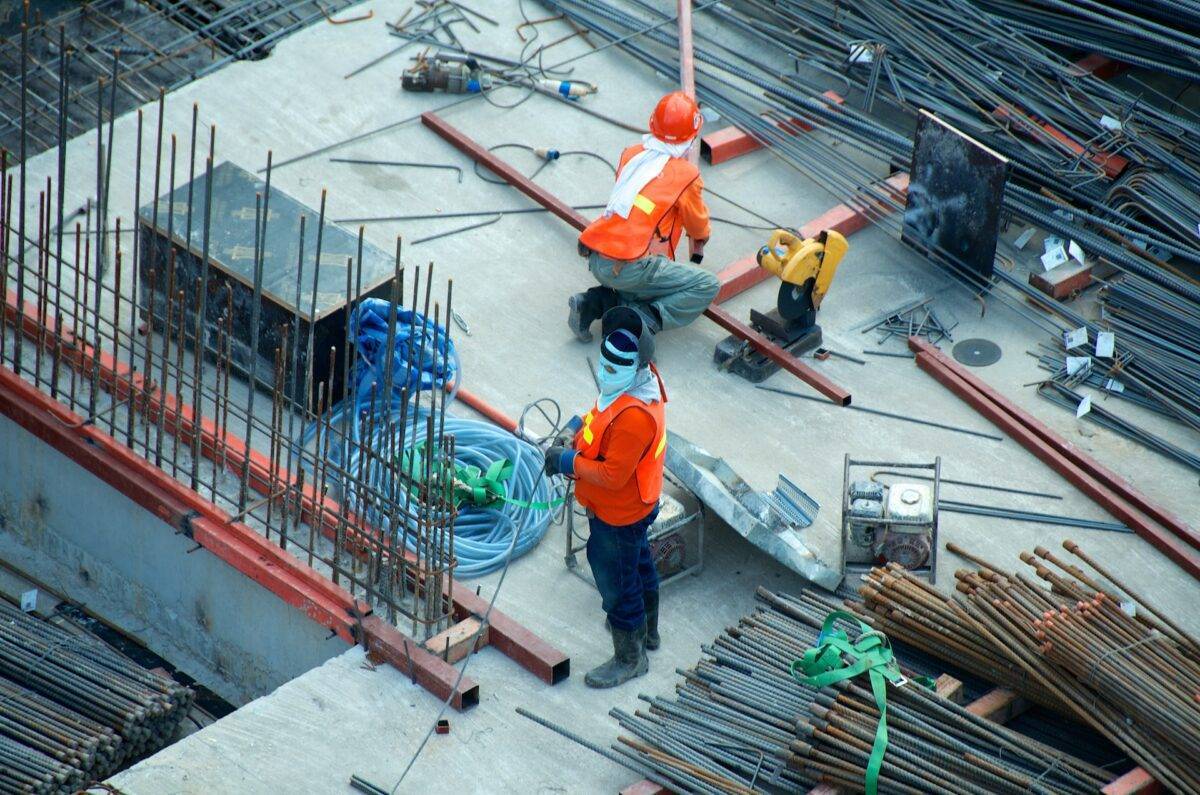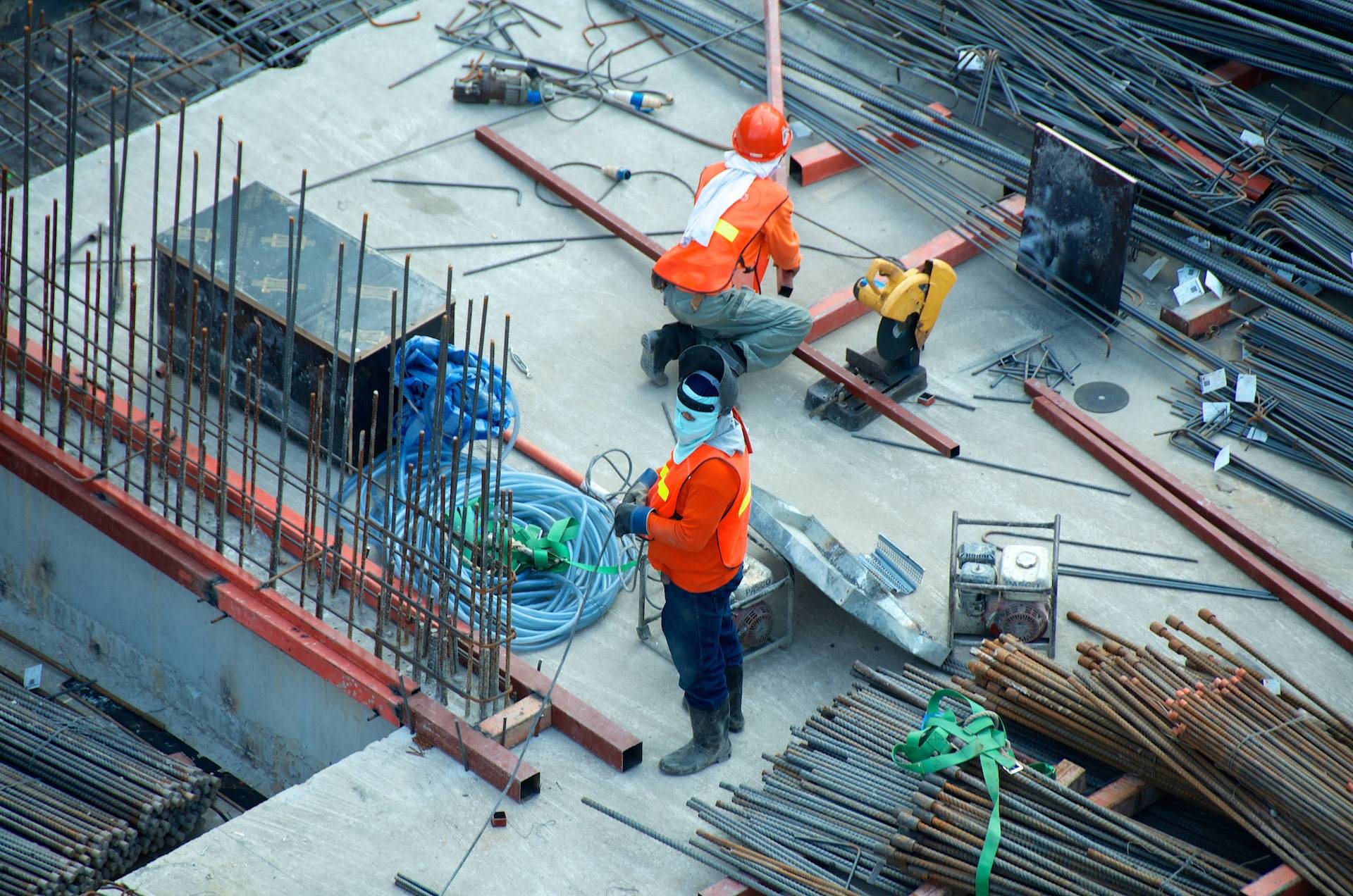
Concrete is a versatile and durable construction material made from cement, water, and aggregates such as sand, gravel, or crushed stone. The combination of these materials creates a paste that hardens over time and becomes a solid mass, capable of supporting heavy loads and withstanding the elements.
Concrete is one of the world’s most widely used construction materials due to its strength, flexibility, and durability. It is used in various applications, though it’s generally used in construction. One of the most common uses is for building foundations. Concrete creates a solid base for a building, which can support the structure’s weight and prevent it from sinking into the ground. Concrete has many benefits that make it an ideal choice for construction projects. Here are some of its benefits:
#1 – Highly Versatile
Concrete is one of the most versatile construction materials in the world because it can be molded into almost any shape or size and customized to meet the specific needs of a construction project. Concrete’s versatility makes it ideal for various applications, from building foundations and walls to bridges and highways.
One of the main advantages of concrete’s versatility is its ability to be customized to meet the specific needs of a construction project. Concrete can be colored, stained, or stamped to create decorative finishes. It can also be combined with other materials, such as glass or steel, to create unique architectural features.
#2 – Durability
Concrete is known for its durability and strength, making it one of the most popular construction materials in the world. Concrete structures can last for many years with little maintenance or repair, making them a cost-effective choice for construction projects of all types and sizes.
One of the main advantages of concrete’s durability is its resistance to harsh weather conditions. Concrete can withstand extreme heat or cold, making it an ideal choice for buildings in areas with extreme weather patterns. It is also resistant to fire, pests, and rot, which can cause damage to other building materials. The rigid structure also makes it highly resistant to wear and tear.
#3 – Increased Safety
One of the main benefits of using concrete in construction is that it increases safety. Concrete is a safe and secure material for construction projects, making it an ideal choice for buildings and infrastructure projects where safety is a top priority.
Concrete is fire-resistant, which means it can help prevent the spread of fires in buildings. This is particularly important in buildings with many people, such as schools, hospitals, and offices. In addition, concrete structures are less likely to collapse during natural disasters such as earthquakes or hurricanes, making them a safer choice for buildings in areas prone to these events.
Concrete is also resistant to pests such as termites and rodents, which can cause damage to other building materials. This makes it an ideal choice for buildings where pests are a problem, reducing the risk of structural damage and the need for costly repairs.
#4 – Eco-Friendliness
Concrete is a highly eco-friendly construction material. It can be made from various recycled materials, such as fly ash, slag, and silica fume, reducing landfill waste. Concrete production requires less energy than other building materials, reducing greenhouse gas emissions.
Concrete is also highly energy-efficient, thanks to its high thermal mass. This means that it can help regulate indoor temperatures and reduce heating and cooling costs, making it an ideal choice for buildings in various climates.
#5 – Sustainable
One of the main benefits of concrete’s sustainability is its ability to be made from recycled materials. Cement production, the primary ingredient in concrete, is responsible for significant greenhouse gas emissions. However, using recycled materials such as fly ash, slag, and silica fume can reduce the amount of cement needed, reducing the carbon footprint of concrete production. Additionally, using recycled materials reduces the amount of waste in landfills, reducing the environmental impact of concrete production.
Concrete’s durability is another significant factor in its sustainability. Concrete structures can last many years with little maintenance or repair, reducing the resources and energy required for upkeep. This is particularly important in areas with high traffic or harsh weather conditions, where other building materials may require more frequent maintenance or replacement.
Conclusion
Concrete is a versatile and durable construction material with many benefits, so it must be used whenever possible. While some concrete may cost higher, it’s a reliable and cost-effective material that can help ensure the success of any construction project. All that matters is getting your concrete from a reputable seller to ensure you get your money’s worth.
If you’re looking for concrete contractors in Tulsa, Tulsa Concrete Contractor can help! Our professional contractors use high-quality materials to ensure you get exquisite concrete features that suit your home. Call us today at (918) 995-4478 to request a quote!

